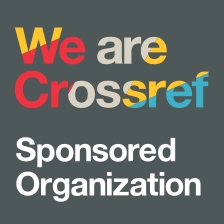Understanding The Double Burden of Women In The Midst of A Pandemic
The Experience of Former TKW Members of Muslimat NU In Kras District
DOI:
https://doi.org/10.35457/translitera.v10i2.1702Keywords:
Women's Double Burden, Female Labor, Muslimat NU, Women's Double Burden, Female Labor, Muslimat NUAbstract
Women who work as female workers from the start have already borne a double burden in their families. Apart from being given the task of carrying out domestic duties even though they are physically not at home, on the other hand they have to work to help meet their household needs. This condition continues even though these former TKWs have returned home. There are many ways that these former TKWs can continue to help make a living, especially during a pandemic where many husbands have lost their source of income. The method used is a type of qualitative research by taking data through in-depth interviews and observations. The resource persons were former women TKW who were also members of the Muslimat NU. The interviews were conducted to find out whether they understood the double burden that she had to do and how these former women TKW received their double burden. The conclusions obtained from this study were former women. These migrant workers in the midst of a pandemic are experiencing extraordinary problems. Most of them choose only as side workers, namely "oncek" melinjo on the grounds that they can be done from home while still supervising their children. This is where NU Muslims as one of the social organizations in Indonesia also attend and provide provisions for these women to understand the double burden they receive. , especially their provision in the field of faith so that they are physically and mentally ready to carry out this mandate.
References
Alfirdaus, L. K. (2018). MENAJAMKAN PERSPEKTIF GENDER , MEMBERDAYAKAN PEREMPUAN DAN MENCAPAI SDGs ( SUSTAINABLE DEVELOPMENT GOALS ). (13)1: 24–40.
Bangun, B. H. (2020). Hak Perempuan dan Kesetaraan Gender dalam Perspektif Filsafat Hukum. Pandecta Research Law Journal, 15(1): 74–82. https://doi.org/10.15294/pandecta.v15i1.23895
Doucet, A. (2009). Gender equality and gender differences: Parenting, habitus, and embodiment (The 2008 Porter Lecture). Canadian Review of Sociology, 46(2): 103–121. https://doi.org/10.1111/j.1755-618X.2009.01206.x
Eriyanti, L. D. (2017). Pemikiran Politik Perempuan Nahdlatul Ulama (NU) dalam Perspektif Feminisme: Penelusuran Pemikiran Mainstream dan Non-Mainstream. Jurnal Ilmu Sosial Dan Ilmu Politik, 20(1): 69. https://doi.org/10.22146/jsp.18002
Hefni, M. (2012). Matrilokal dan Kekuasaan Patriarkat. 2Karsa, 20(2), 212–227.
Hidayati, N. (2015). Beban Ganda Perempuan Bekerja (Antara Domestik dan Publik). Muwazah, (7)2: 108–119.
Kusumawati, Y. (2013). Peran Ganda Perempuan Pemetik Teh. Komunitas: International Journal of Indonesian Society and Culture, 4(2): 157–167. https://doi.org/10.15294/komunitas.v4i2.2411
Pane, D. N., Fikri, M. EL, & Ritonga, H. M. (2018). UPAYA PEMBERDAYAAN KELUARGA TKW DALAM MEWUJUDKAN KESEJAHTERAAN RUMAH TANGGA. Journal of Chemical Information and Modeling, 53(9): 1689–1699.
Purnawati, L. (2020). Peranan Pemerintah Desa dalam Menangani Konflik Peternakan Ayam Broiler di Desa Pucanglaban Kabupaten Tulungagung. Nakhoda: Jurnal Ilmu Pemerintahan, 19(2): 229–243. https://doi.org/10.35967/njip.v19i2.117
Rahmah, S. (2019). Pendidikan Dan Kesetaraan Gender Dalam Islam Di Aceh. Gender Equality: International Journal of Child and Gender Studies, 5(1): 25. https://doi.org/10.22373/equality.v5i1.5376
Ramadhani, N. (2016). Implikasi Peran Ganda Perempuan Dalam Kehidupan Keluarga Dan Lingkungan Masyarakat. Sosietas, 6(2). https://doi.org/10.17509/sosietas.v6i2.4245
Suganda, R., Sutrisno, E., & Wardana, I. W. (2013). PERGESERAN PERAN DOMESTIK PADA KELUARGA TKW DI DESA SASAHAN KECAMATAN WARINGIN KURUNG KABUPATEN SERANG. Journal of Chemical Information and Modeling, 53(9): 1689–1699.
Downloads
Published
Issue
Section
License
Authors who publish with this journal agree to the following terms:
- Copyright on any article is retained by the author(s).
- Author grant the journal, right of first publication with the work simultaneously licensed under a Creative Commons Attribution License that allows others to share the work with an acknowledgement of the work’s authorship and initial publication in this journal.
- Authors are able to enter into separate, additional contractual arrangements for the non-exclusive distribution of the journal’s published version of the work (e.g., post it to an institutional repository or publish it in a book), with an acknowledgement of its initial publication in this journal.
- Authors are permitted and encouraged to post their work online (e.g., in institutional repositories or on their website) prior to and during the submission process, as it can lead to productive exchanges, as well as earlier and greater citation of published work.
- The article and any associated published material is distributed under the Creative Commons Attribution-ShareAlike 4.0 International License












